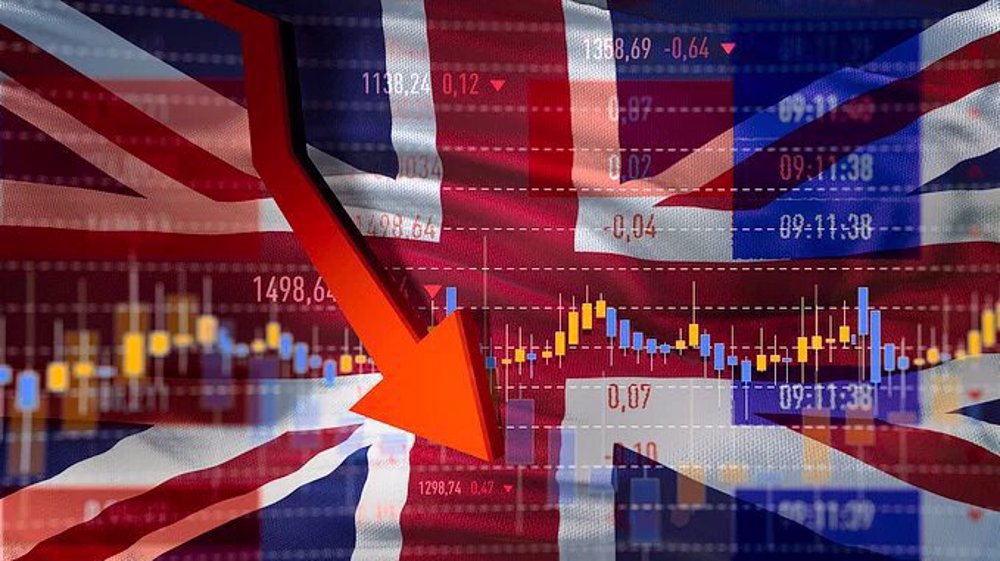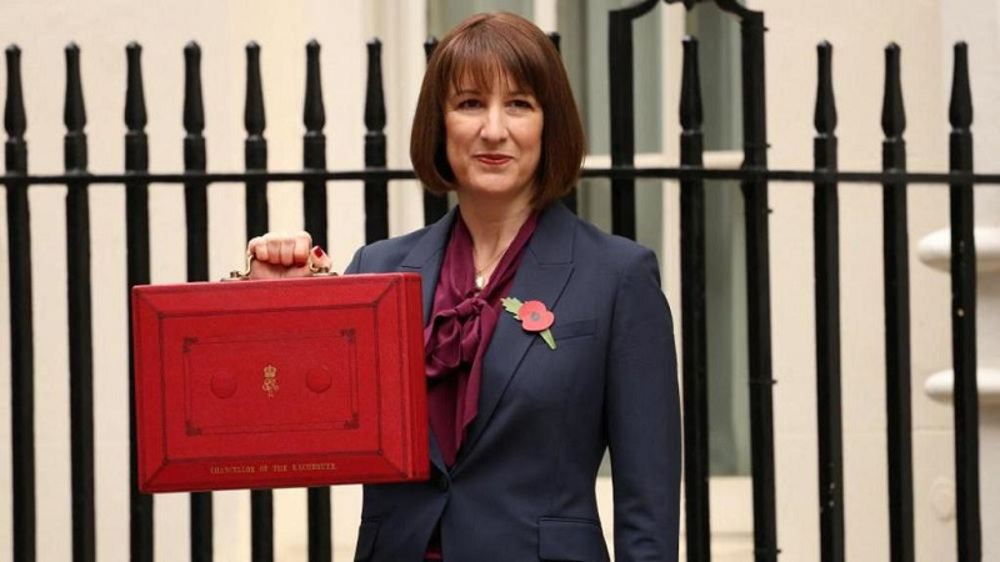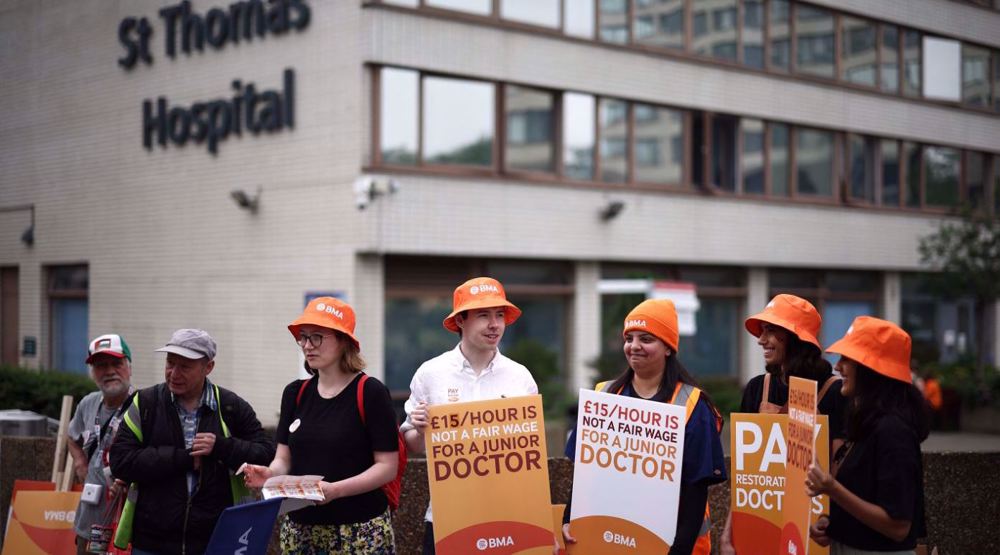UK falls into recession in huge blow to PM Sunak
The United Kingdom has slipped into recession just months ahead of the country’s general election, reversing Prime Minister Rishi Sunak’s pledge to generate economic growth.
As per the official figures released on Thursday by the Office for National Statistics (ONS), the gross domestic product fell 0.3% in the final three months of 2023, following a 0.1% contraction in the July-to-September period.
Reviving the economy and boosting growth was one of the many promises that Sunak made in January 2023 to the voters and failed to accomplish.
Britain’s economy which has been stagnating for nearly two years fell into a recession in the second half of 2023.
A recession is commonly defined as two consecutive quarters of contraction.
Hard-pressed British households will see a further drop in living standards in a period between two consecutive general elections since the Second World War, analysts have said.
“All the main sectors fell on the quarter, with manufacturing, construction and wholesale being the biggest drags on growth, partially offset by increases in hotels and rentals of vehicles and machinery,” ONS director of economic statistics Liz McKeown said in a statement.
The ONS estimates that the UK GDP will increase by a meager 0.1% in 2023. That’s the worst performance since 2009 when the economy was still reeling from the global financial crisis, if 2020, which was affected by the pandemic, is excluded.
"Our initial estimate shows the UK economy contracted in the fourth quarter of 2023. While it has now shrunk for two consecutive quarters, across 2023 as a whole the economy has been broadly flat,” McKeown said.
The news is expected to come as a setback to Sunak, whose ruling Conservative Party is contesting two local elections in England on Thursday.
The data also provides an unwelcome backdrop for the government’s annual budget announcement next month. UK finance minister Jeremy Hunt is expected to introduce cuts to taxes, despite the frail economy and sky-high government debt levels.
Media reports said Hunt was seeking to cut billions of pounds from public spending plans to fund pre-election tax cuts in his budget.
Hunt said that low growth was to be expected due to high interest rates, which the Bank of England has taken to levels not seen in 26 years to tackle inflation.
As per the latest data, Britain joins Japan among the Group of Seven advanced economies in a recession. Britain's economy stands just 1% higher than its level in late 2019 before the COVID-19 pandemic struck - with only Germany among G7 countries faring worse.
The economic recession that may come as a failure for Sunak could benefit the opposition Labour Party which is already leading in opinion polls ahead of the national elections expected this year.
Norway refuses to face Israel in 2026 World Cup qualifier over Gaza atrocities
Israel must stop demolition of Palestinian homes in West Bank: OCHA
VIDEO | Leader meets with top Iranian women experts on family, empowerment, and resistance
UN condemns Israel for violating 1974 Syria truce deal after seizing 'buffer zone'
VIDEO | Sana'a university protest: Solidarity with Gaza, condemnation of Arab silence
Assad knew aligning with pro-Israel Arab rulers would mean betrayal of Palestine
Israeli shelling knocks out northern Gaza’s sole intensive care unit
President Pezeshkian departs Tehran for D-8 meeting in Egypt










 This makes it easy to access the Press TV website
This makes it easy to access the Press TV website